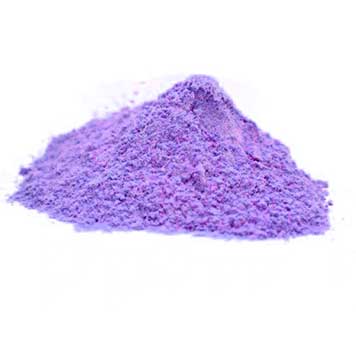
Benefits of Citric Acid as a Natural Preservative in Food Products
Citric Acid as a Preservative An In-Depth Look
In today's fast-paced world, food preservation plays a crucial role in maintaining the quality, safety, and longevity of our food products. Among various methods, natural preservatives have gained significant attention due to their efficacy and safety profiles. One such natural preservative is citric acid, a weak organic acid that is found naturally in citrus fruits. This article explores the uses, benefits, and implications of citric acid as a preservative in food products.
Citric acid (C6H8O7) is prominent in the food industry primarily due to its sour taste and its ability to act as a natural preservative. It is a key ingredient in many fruit juices, soft drinks, and canned foods, enhancing flavor and extending shelf life. The acid works by creating an environment that is hostile to bacteria, molds, and yeasts that typically cause spoilage. Its low pH level disrupts the metabolic processes of microorganisms, effectively inhibiting their growth.
Citric Acid as a Preservative An In-Depth Look
Another significant benefit of citric acid as a preservative is its compatibility with a variety of food items. It is widely recognized by consumers as a safe and natural alternative compared to synthetic preservatives. Moreover, it is used in a range of applications, not just limited to food. Its versatility also extends to cosmetics, pharmaceuticals, and even cleaning products, where it helps to stabilize formulas without the risk of harmful side effects.
citric acid preservative

Though citric acid is generally regarded as safe, it is important to consider individual sensitivities. Some people may experience allergic reactions or gastrointestinal discomfort when consuming products high in citric acid. Therefore, it is crucial for food manufacturers to clearly label their products, allowing consumers to make informed choices based on their dietary needs.
The rise of the clean label movement, where consumers seek products with fewer artificial ingredients, has further solidified the role of citric acid in the food industry. As more consumers are becoming health-conscious and wary of artificial additives, citric acid provides a compelling solution. It allows manufacturers to meet market demands while maintaining quality and safety standards.
In addition to its practical applications, the production of citric acid has significant implications for sustainability. Most citric acid in the food industry is produced through fermentation processes using renewable resources such as corn and sugarcane. This is advantageous not only for environmental reasons but also for the economic viability of sourcing natural ingredients.
In conclusion, citric acid is a multifaceted preservative that offers numerous benefits, including its antioxidant properties, compatibility with various food products, and acceptance in the eyes of consumers. As the food industry continues to evolve, citric acid stands out as a natural option for preserving food quality and safety while aligning with the preferences of health-conscious consumers. Its wide-ranging applications and sustainable production methods underscore the relevance of citric acid in modern food preservation practices. By harnessing the power of this natural compound, we can enhance the longevity of our food without compromising on safety or flavor.
-
Buy High-Quality Trichloroisocyanuric Acid for Sale | TCCA 90% SupplierNewsAug.30,2025
-
Pure Sodium Dichloroisocyanurate Dihydrate | Powerful DisinfectantNewsAug.29,2025
-
Industrial Chemicals: Quality & Purity for Every IndustryNewsAug.28,2025
-
Nitrile Rubber Honoring Strict Production StandardsNewsAug.22,2025
-
Aspartame Ingredients Honoring Food Safety ValuesNewsAug.22,2025
-
Fertilizer for Balanced Plant NutritionNewsAug.22,2025
-
Cyanide Gold Processing with High Purity AdditivesNewsAug.22,2025
Hebei Tenger Chemical Technology Co., Ltd. focuses on the chemical industry and is committed to the export service of chemical raw materials.
-

view more DiethanolisopropanolamineIn the ever-growing field of chemical solutions, diethanolisopropanolamine (DEIPA) stands out as a versatile and important compound. Due to its unique chemical structure and properties, DEIPA is of interest to various industries including construction, personal care, and agriculture. -

view more TriisopropanolamineTriisopropanolamine (TIPA) alkanol amine substance, is a kind of alcohol amine compound with amino and alcohol hydroxyl, and because of its molecules contains both amino and hydroxyl. -

view more Tetramethyl Thiuram DisulfideTetramethyl thiuram disulfide, also known as TMTD, is a white to light-yellow powder with a distinct sulfur-like odor. It is soluble in organic solvents such as benzene, acetone, and ethyl acetate, making it highly versatile for use in different formulations. TMTD is known for its excellent vulcanization acceleration properties, which makes it a key ingredient in the production of rubber products. Additionally, it acts as an effective fungicide and bactericide, making it valuable in agricultural applications. Its high purity and stability ensure consistent performance, making it a preferred choice for manufacturers across various industries.





